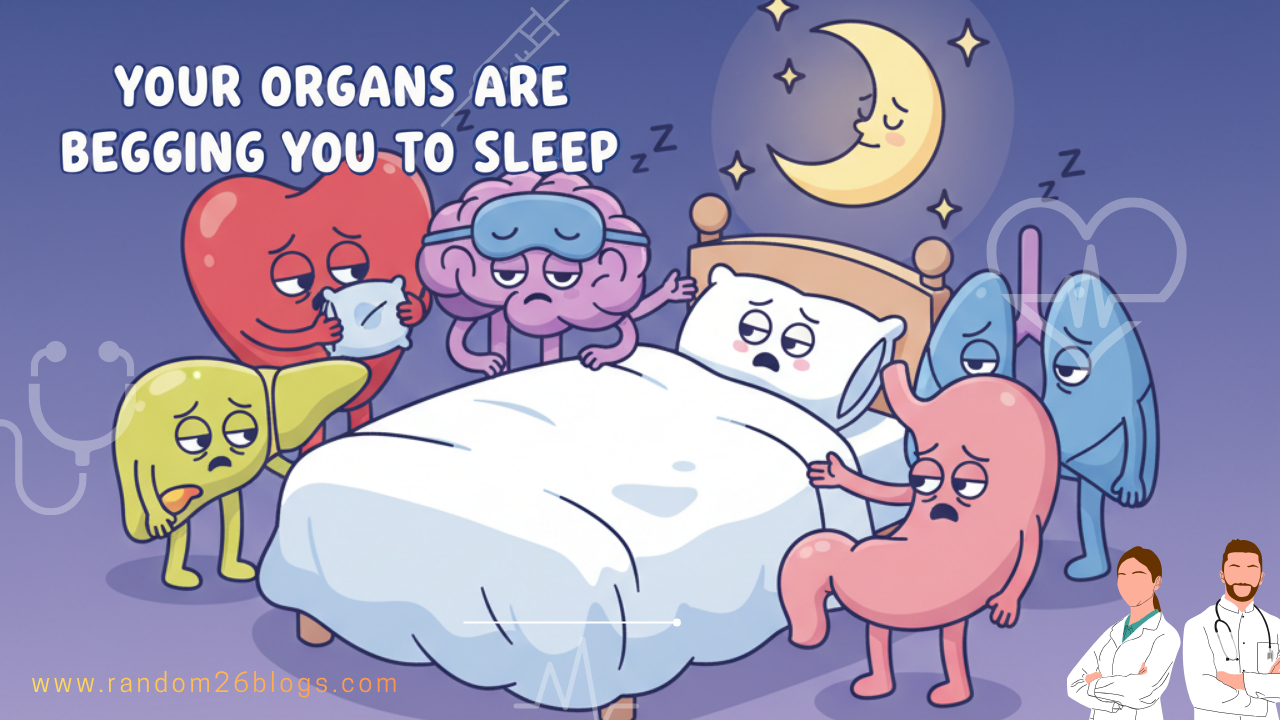The Silent Suffering of Sleep Deprivation
“Sleep is not rest. It’s your body’s repair mode.”
We often think of sleep as downtime — hours of inactivity when nothing important happens. But in truth, it’s the exact opposite. During deep sleep, your body’s most vital organs — the liver, brain, skin, heart, hormones, and gut — enter a powerful phase of detox, repair, and regeneration. Skipping sleep doesn’t just mean feeling tired; it halts your body’s essential overnight maintenance, leaving systems clogged, hormones imbalanced, and energy drained.
In this post, we’ll explore how your organs beg you to sleep, uncovering what each one does when you rest — and what happens when you don’t.
The Liver: Your Night-Time Detox Champion
When you finally fall asleep, your liver begins its most crucial work — filtering toxins, metabolizing drugs and alcohol, and clearing out environmental pollutants and excess hormones. It goes through a two-phase detoxification process, converting toxins into water-soluble compounds so they can be eliminated.
Sleep is the fuel for this process. Between 11 PM and 2 AM, the liver operates at its peak, working to cleanse and regenerate. Skipping this window or eating heavy meals before bed forces it to multitask — digesting instead of detoxifying — leaving you feeling sluggish and “toxic” the next day.
Tip: Aim to sleep before 11 PM, and keep dinners light and early. Give your liver the calm, nutrient-rich environment it needs for deep overnight cleansing.
liver detox at night, sleep and organ health
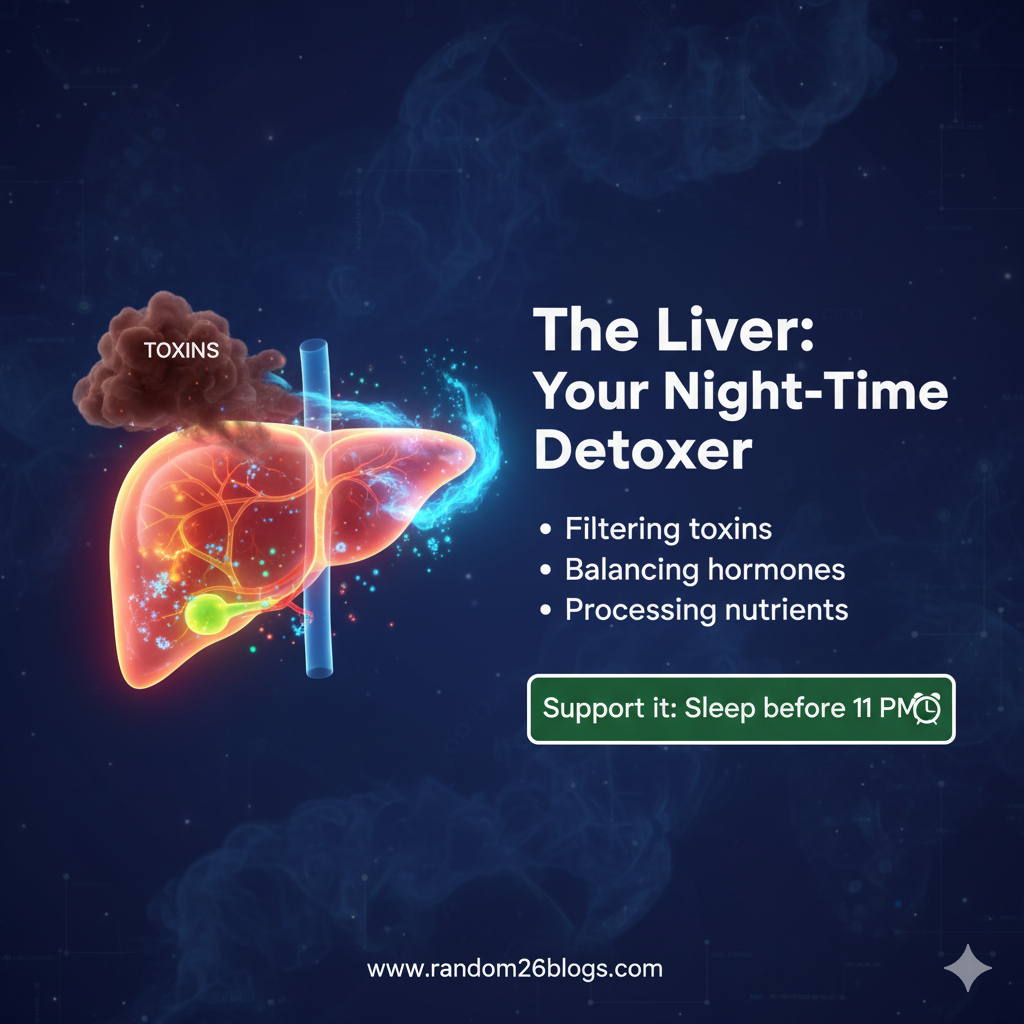
The Brain: Activating the Glymphatic Cleanup Crew
While you sleep, your brain turns on its built-in janitorial system — the glymphatic system — a network responsible for clearing waste and toxins from the central nervous system. Like the lymphatic system, it flushes out cellular debris, but it’s unique to the brain and spinal cord.
During deep, slow-wave sleep, this system becomes up to 10 times more active, washing away harmful waste like beta-amyloid, a protein linked to Alzheimer’s disease.
When you skimp on rest, your brain’s detox is delayed. The result? Morning brain fog, poor focus, irritability, and a higher risk of long-term neurodegeneration.
Tip: Support your glymphatic system by turning off screens an hour before bed to promote melatonin production, which triggers deep sleep. Include magnesium-rich foods like pumpkin seeds and almonds in your evening meal to relax the nervous system naturally.
glymphatic system, sleep and organ health
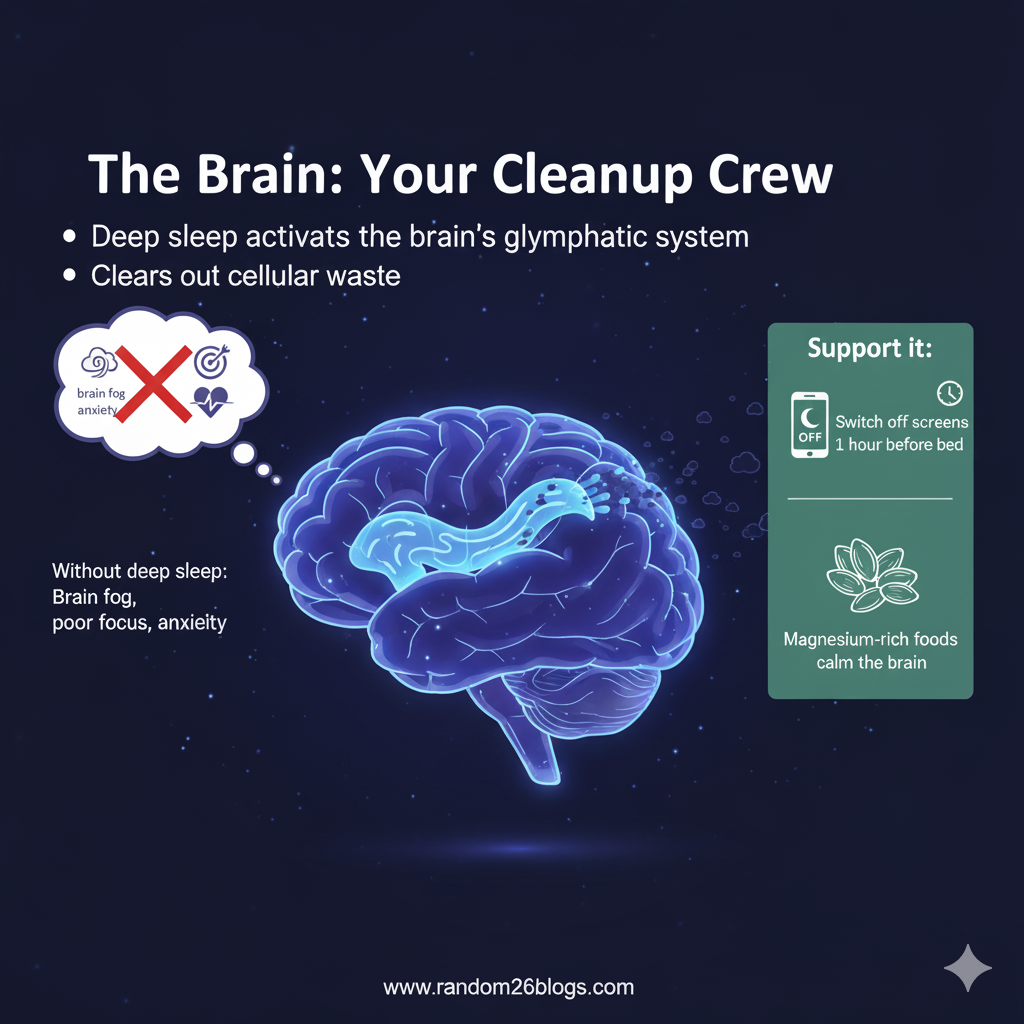
The Skin: Your Night Repair Organ
Your skin doesn’t just glow from good skincare — it depends on deep sleep for its natural repair cycle. During the night, your body releases Human Growth Hormone (HGH), which drives collagen synthesis and cell turnover. Blood flow to the skin also increases, delivering oxygen and nutrients needed for repair.
Without enough rest, your skin ages faster: less collagen means more wrinkles, slower healing, and a dull, uneven tone. Stress hormones rise, triggering breakouts and inflammation.
Tip: Hydrate well throughout the day and include Vitamin C (antioxidant) and Zinc (collagen structure) in your dinner to enhance overnight repair.
sleep for skin repair, sleep and organ health
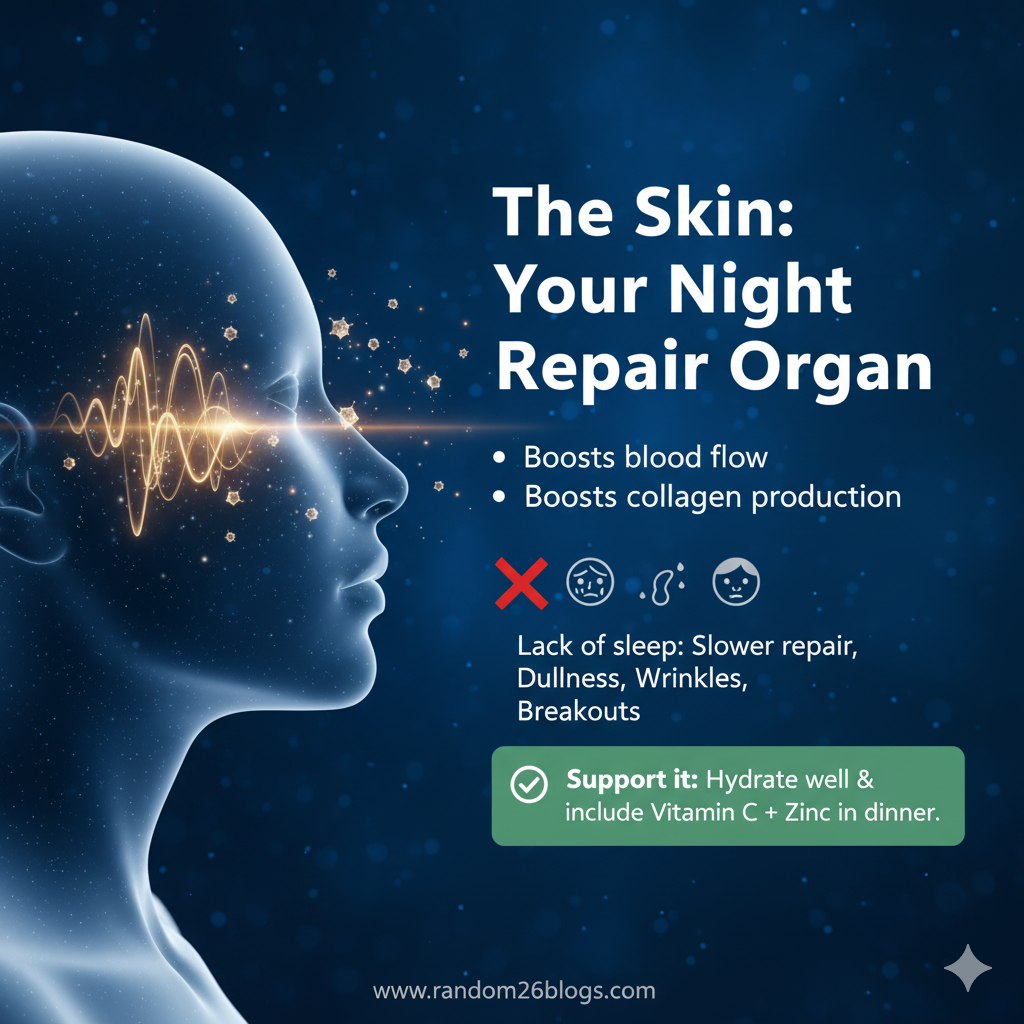
The Heart & Hormones: Regulating Your Body’s Command Center
Sleep gives your heart and hormones a much-needed reset. During deep sleep, your heart rate and blood pressure drop, reducing stress on your cardiovascular system. Without this nightly rest, cortisol — the stress hormone — remains high, increasing inflammation and long-term heart risk.
But it’s not just the heart. Sleep regulates a symphony of hormones:
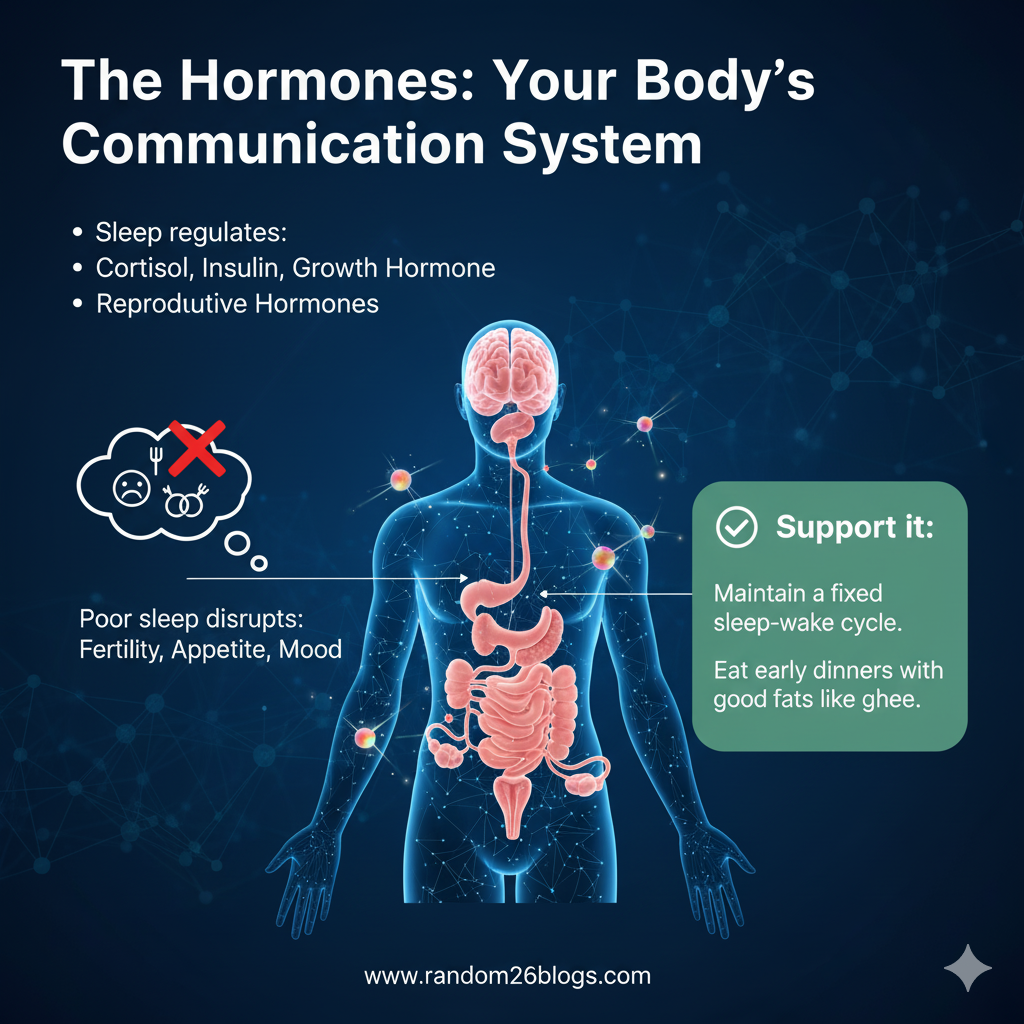
- Cortisol (Stress): Without rest, cortisol levels stay elevated, causing fat storage and anxiety.
- Insulin (Metabolism): Sleep deprivation impairs insulin sensitivity, raising your diabetes risk.
- Growth Hormone: Reduced sleep means slower muscle and tissue repair.
- Reproductive Hormones: Disruption can affect fertility, libido, and menstrual health.
Tip: Keep a consistent sleep-wake schedule, even on weekends. Support hormone balance with healthy fats like ghee or avocado at dinner, and enjoy calming herbal teas (chamomile or tulsi) before bed.
hormone regulation sleep, sleep and organ health
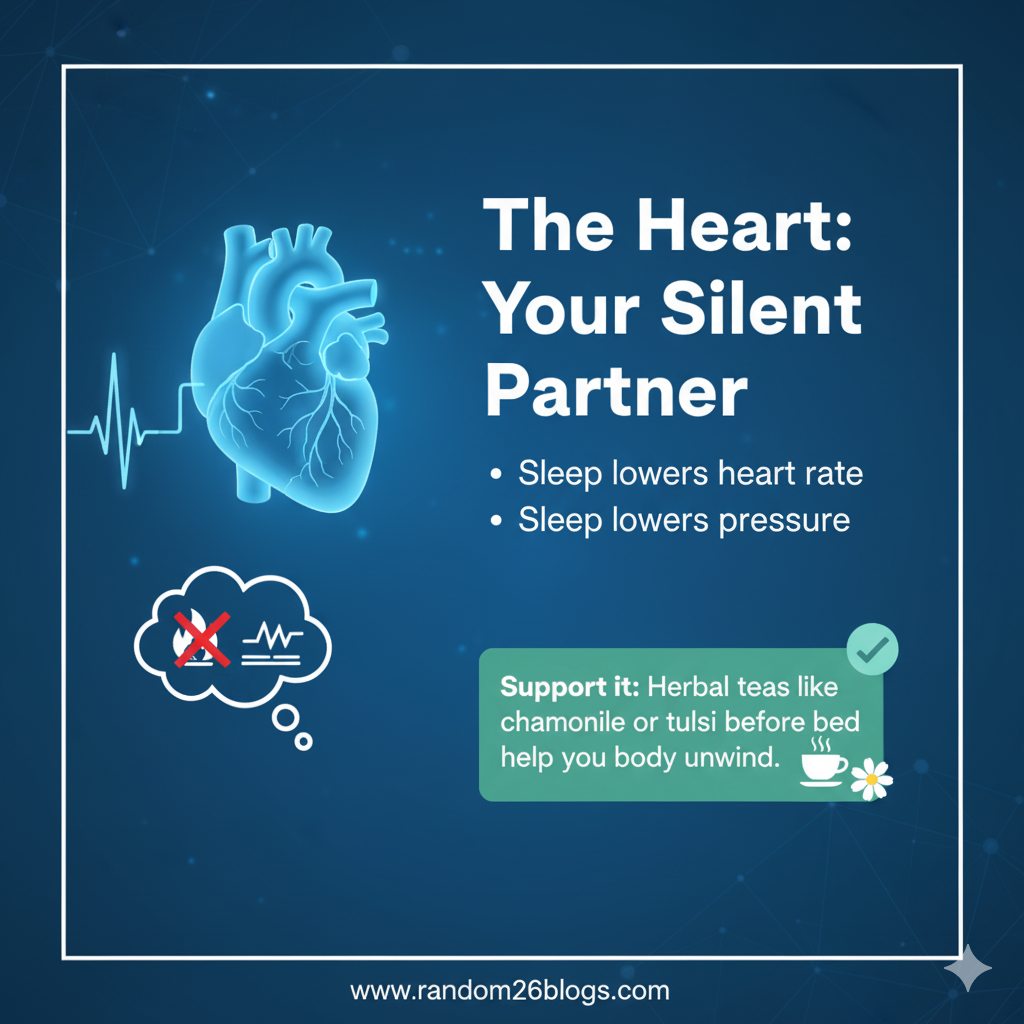
The Gut: Resetting the Microbial Balance
Your gut and brain communicate through the gut-brain axis, and deep sleep allows both systems to repair and rebalance. During rest, your gut lining heals, and beneficial bacteria multiply — essential for digestion, immunity, and even mood regulation.
Late-night snacking and blue light disrupt this delicate process, leading to bloating, poor digestion, and mood swings.
Tip: Follow time-restricted eating — finish dinner 2–3 hours before bed. Feed your microbiome during the day with fiber-rich prebiotics so they can thrive while you sleep.
gut microbiome sleep, sleep and organ health
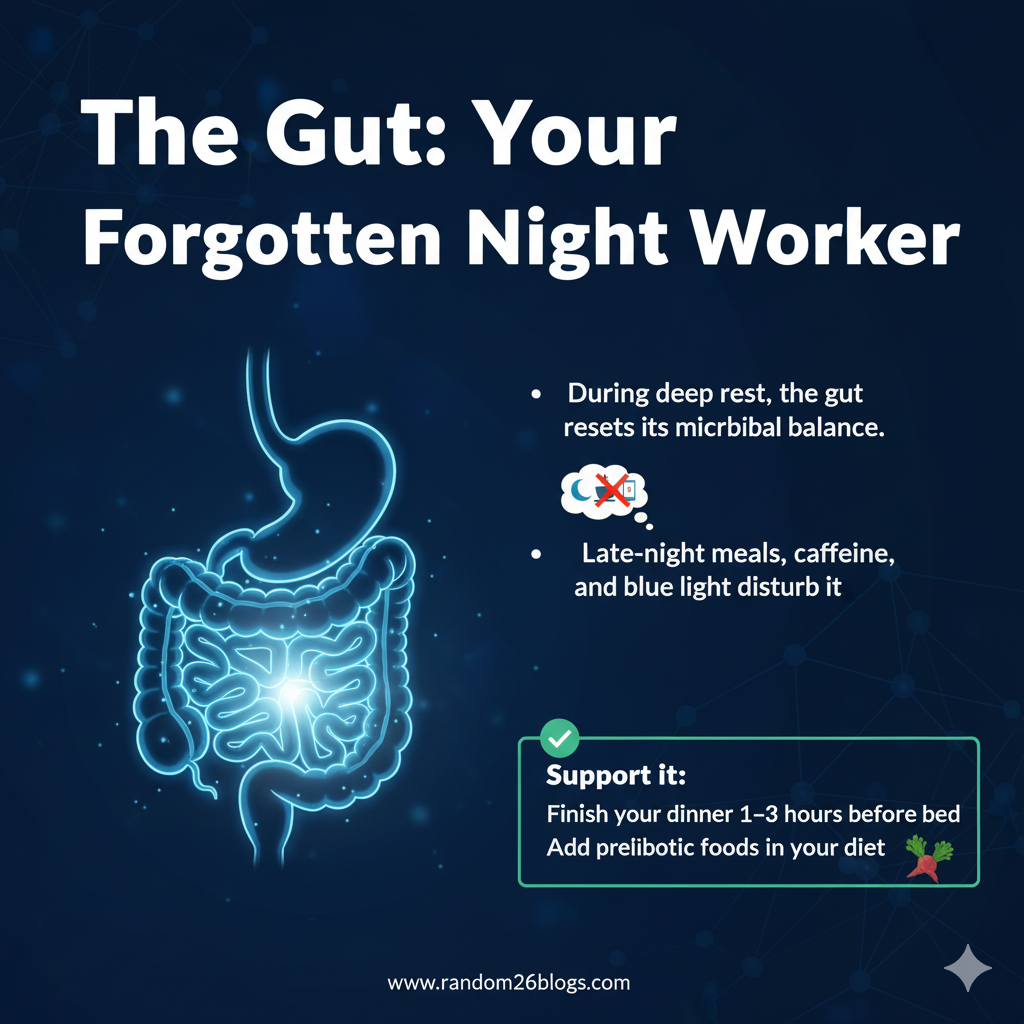
You Can’t “Catch Up” — Every Night Matters
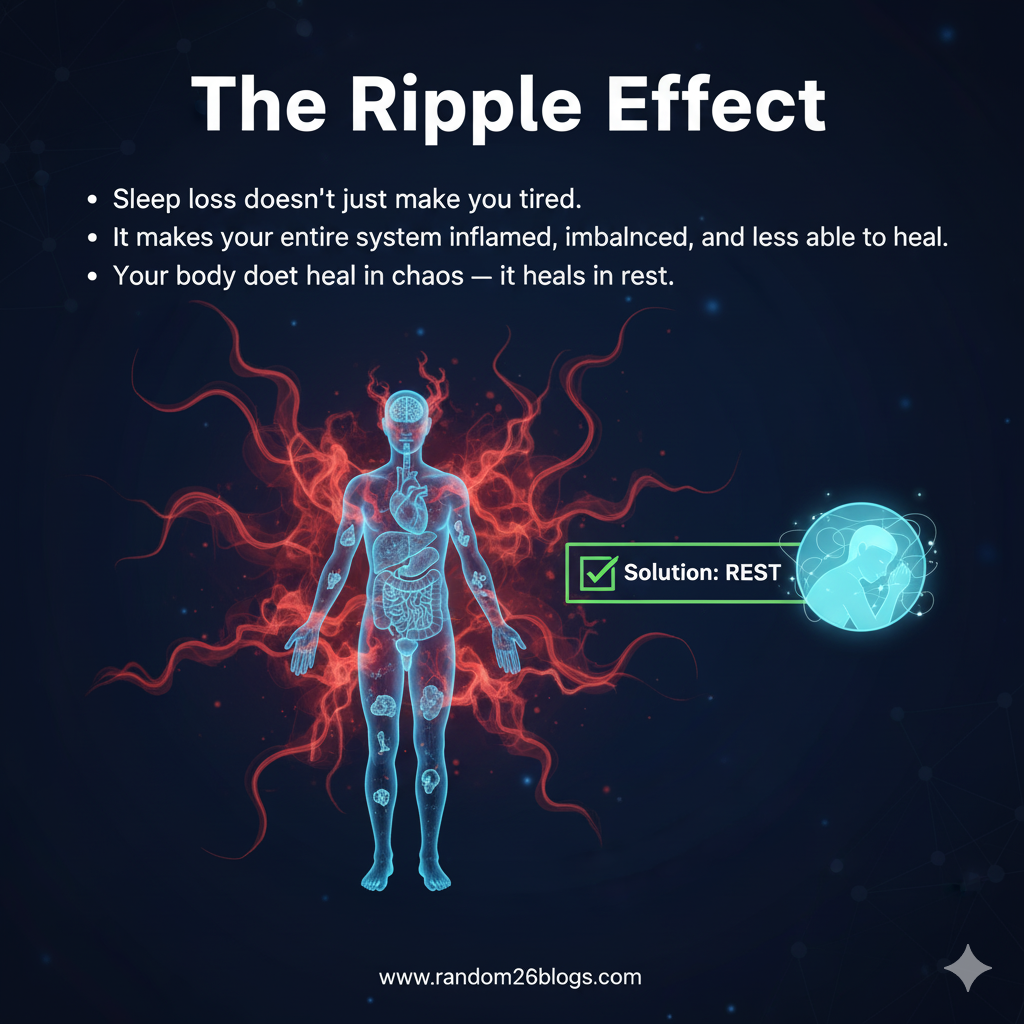
Missing sleep doesn’t just make you tired — it throws your entire body off balance. Inflammation rises, detox slows, and your organs lose their chance to reset. You can’t “catch up” on missed rest; every night is an opportunity for renewal.
Your liver, brain, skin, heart, hormones, and gut are all begging you to sleep — not for comfort, but for survival.
So tonight, when fatigue whispers, listen closely.
Because if you ignore the whispers, your organs will eventually scream.
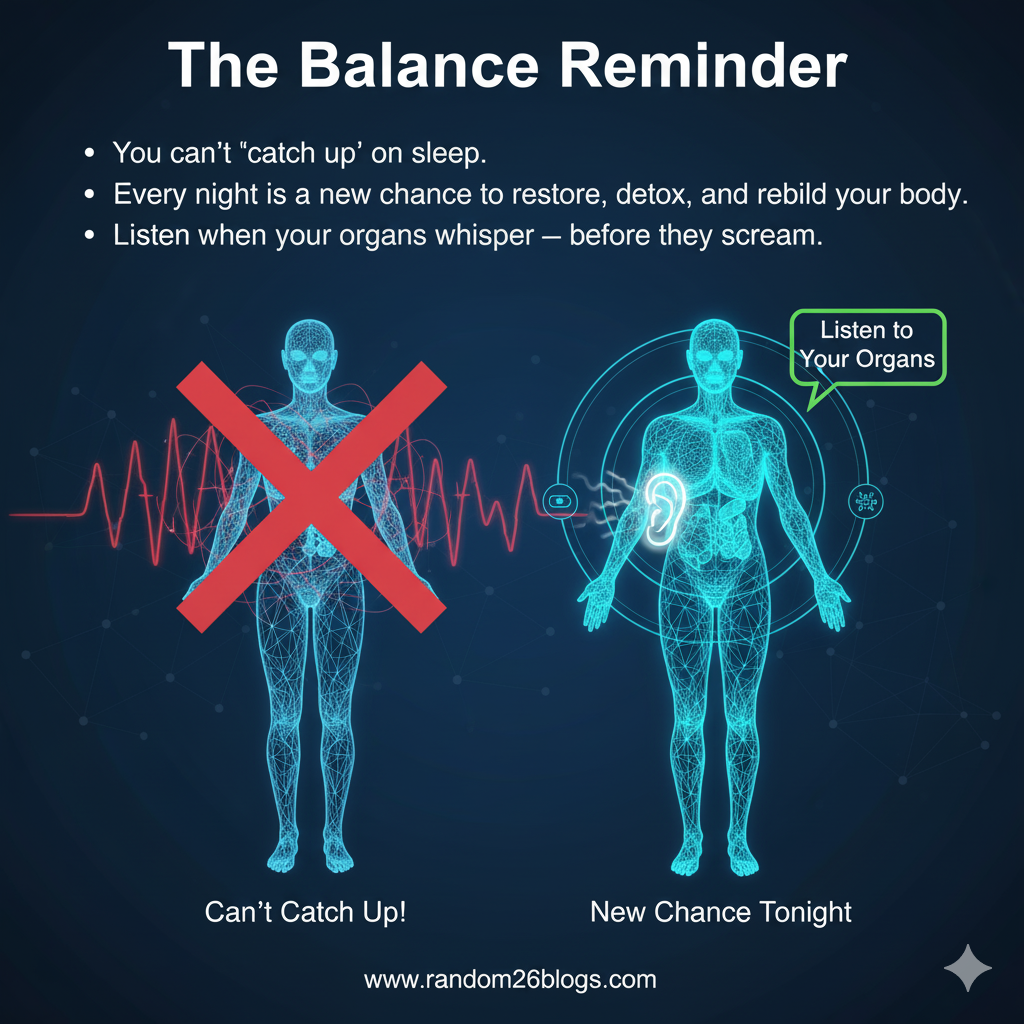
Prioritize your eight hours. Deep sleep isn’t optional — it’s the foundation of total body repair.

